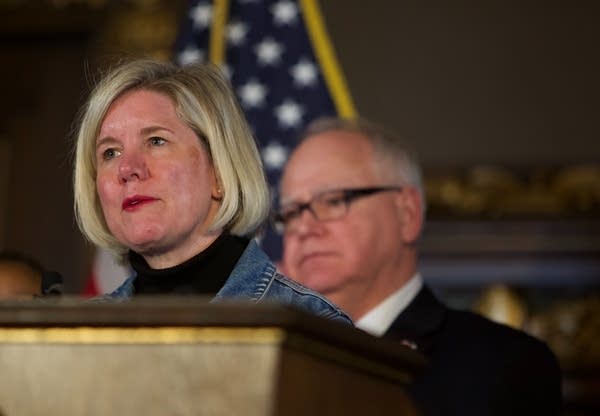Soon to retire, Kris Ehresmann looks back on 30 years in public health

Minnesota Department of Health director of infectious disease Kris Ehresmann speaks to reporters following the announcement of the first case of COVID-19 in Minnesota.
Christine T. Ngyuen | MPR News 2020
Go Deeper.
Create an account or log in to save stories.
Like this?
Thanks for liking this story! We have added it to a list of your favorite stories.


